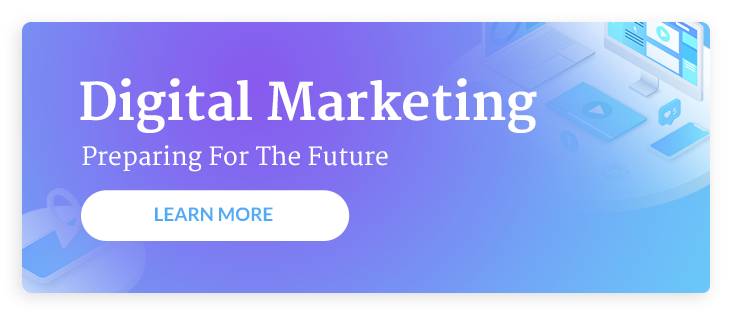
How Much Should You Budget for Digital Marketing?

You know you have to spend money to make money. Yet, if you spend too much relative to revenue and earnings before interest, taxes, depreciation and amortization (EBITDA), you may lose some love from your stakeholders. For public companies, that could mean a board losing faith in leadership and eventually cost you your job.
On the other hand, in our increasingly digital world, failure to invest in digital marketing will almost guarantee your competitors will outperform you. According to the latest marketing trends, demand for inbound marketing will continue to rise, with 27% of marketers using it for the first time in 2022 and more than one tenth of marketers making it their single largest investment this year.
While cutting your digital marketing budget will produce a stronger balance sheet in the near term, you’ll be left scratching your head as your competitors outpace your company with greater visibility and brand equity to support new go-to-market offerings.
The trick is finding that marketing budget sweet spot. Here’s how.
How Much Should Companies Budget for Digital Marketing?
Size is one of the primary factors in determining a digital marketing budget. For small and medium business solutions (SMBS), the U.S. Small Business Administration suggests allocating 7-8% of your gross revenue to your marketing budget. Digital marketing budgets average 45-50% of that overall marketing budget — with video marketing leading the charge in terms of focus.
Digital Marketing Budget Examples
A company with $5 million in revenue will allocate $350,000 to its overall marketing budget, with $157,000 or more exclusively invested in digital marketing.
Meanwhile, a company with $50 million in revenue will allocate $3.5 million to marketing. More than $1.5 million of that budget will solely go to digital marketing.
For Fortune 500 companies and established brands, total digital marketing costs could fall well under 5% of revenue. And for many nonprofits who need to share their story in today’s digital landscape, 5-15% of the operating budget is common.
Digital Marketing Budget For Nontraditional Organizations
Key factors in getting the support for a digital marketing budget and setting your company up for success are your business model’s mission and value proposition and how well this messaging is communicated by the leadership team. This is especially true for nontraditional organizations.
Online brokerage Robinhood is one example. With a mission to “democratize finance for all” and a value proposition that delivers commission-free trading, this company generated over 20 million customers in a short period of time.
Digital and paid marketing efforts accounted for about 42% of Robinhood’s budget in 2020, following a 72% budget in 2019 ($33 million), despite showing no profit at that time or in their near-term projections. This is indicative of how a strong value proposition can garner budget support from upper management because it gives them confidence that the investment will pay off in time.
Digital Marketing Budget For Value Companies
Value companies are mature companies that have continuous growth, and while their market value may be lower than their actual worth, their returns are still very important to stakeholders.
If your company falls into this category, you need to be strategic about how you will generate new revenue. Will you use traditional advertising and direct mail? Attend trade shows? A combination of the two? Evaluate how well those initiatives have historically worked out as well as how they may or may not be ideal for your company today.
Take JPMorgan Chase as an example. While pulling back funds from in-person events in recent years, the company reallocated inventory set aside from other portions of their business to their marketing budget. Leaning into TV ads and digital marketing as an alternative gave them a new platform to reach wealth management clients and emphasize service in trying times.
What Makes Up a Digital Marketing Strategy?
Going digital isn't enough. Cranking out content on your website and promoting new posts through your social networks without a concrete strategy won’t yield your desired results.
You have to know your prospects' virtual hangouts and what their pain points are. Then, you have to get their attention and inspire them to take some form of action, such as downloading an eBook or attending one of your webinars. This helps establish you as a trusted expert and their go-to source for information, which eventually converts leads into customers. It also helps you keep the customers you already have.
Here are some key components to your strategy:
- Buyer Personas: The people most likely to be involved in a purchase decision
- Buyer Journey: The steps buyers most often take to research, evaluate, and decide to buy from you
- Content Mapping: The kinds of content and topics, as well as how and when to deliver that content to stimulate buyers to move forward through the journey
- Demand Generation: How will you get your content in front of buyers? What channels and approaches are best for reaching them?
- Conversion: What approaches will you take to optimize lead conversion rates?
- Lead Scoring & Management: How will you evaluate leads once they have embarked on the buyer journey? When will they be ready for a sales call?
- Goals and KPIs: What does success look like, and how will you measure progress toward your goals?
Let’s take a closer look at some of these components and how they impact your digital marketing strategy.
Digital Marketing Content
Next to strategy, content is king in digital marketing. Success is entirely dependent on the quality, targeting, relevance and persuasiveness of your content. Once your content strategy is in place, you need a team of talented brand journalists, graphic designers and social media experts to provide that consistent flow of demand generation and lead nurturing content. Without that investment, you will struggle to grow brand awareness, thought leadership and qualified sales leads through inbound marketing.
Demand Generation
This is the part of digital marketing where you are reaching out to people who aren't yet in your contact database. Pay-per-click advertising (PPC), social media advertising and native advertising fall into this category. The inbound way to generate demand is to avoid direct sales promotions. Instead, compel people to engage with or download value-rich top-funnel content, such as eBooks, whitepapers and other resources.
Most companies need to provide an adequate budget for demand generation to overcome your competitors' efforts and generate substantial numbers of new qualified leads.
Marketing Technology, Lead Management & Analytics
This part of the budget includes marketing automation software, such as HubSpot, as well as experienced team members to operate, manage and update the website, provide insights and generate reports.
You will probably need at least one full-time marketing technologist focused on marketing automation and your CRM, and one web designer/developer to keep the website current and working optimally.
After you formulate your digital marketing strategy, you need to revisit it regularly to ensure you’re changing with the market.
Invest Your Digital Marketing Budget In the Right Places
As CMOs learn more about the nature and best practices of inbound marketing and content marketing, digital marketing budgets are likely to expand even more. After all, the primary benefit of inbound marketing is its ability to deliver better-qualified sales leads more efficiently than outbound methods, while being 100% measurable, visible and accountable. This gives you the data you need to effectively report back to stakeholders and make smarter business decisions for the future.
As your digital marketing needs evolve and grow, partnering with an inbound marketing agency like Kuno Creative can offer a cost-effective solution. Functioning as an extension of your team, you’ll get the expertise you need to make the most of your digital marketing budget without the in-house overhead costs.




